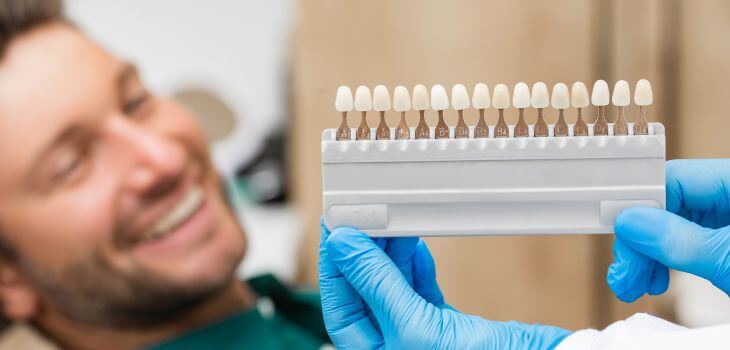Does a Root Canal Hurt?

When a tooth is infected or severely damaged, it can be in jeopardy. In the past, the only way to stop the infection or pain was to remove the tooth. Root canal therapy has been used for decades to save infected teeth. This procedure can remove the infected tooth material and nerve roots, stopping the pain and infection. While root canal therapy is effective for saving teeth, some patients worry about the pain of the procedure. Does a root canal hurt? Here is what you need to know about the discomfort of a root canal procedure.
Before discussing whether a root canal hurts during or after the procedure, it is important to understand the treatment. Each tooth has one or more roots that connect it to the jawbone and to the nervous system. When a root canal is performed, the inside of one or more tooth roots are accessed from the top of the tooth. The live nerve roots and pulp inside the root are removed, and the inside of the root canal is sterilized to stop any infection. The inside of the tooth is packed with a dental material and the tooth is resealed.
Root canal therapy has been used to save infected or damaged teeth for decades, but it has not always been a one-visit procedure. New dental technology, such as advanced imaging and equipment, has made it simpler to perform this procedure in one session. Root canal therapy once was more invasive and often took multiple dental visits, and the patient could experience pain throughout the process. The current methods of root canal have made it much less painful and shortened the procedure, reducing discomfort for the patient.
Does a Root Canal Hurt During the Procedure?
Like most dental treatments, local anesthesia is used during root canal therapy to numb the tooth nerves. This means that during the treatment, patients should not feel any pain. There may be a pinch when the local anesthesia injection is given to numb the tooth, but once the tooth is numb, patients should feel no pain during a root canal. In most cases, the nerve roots that send pain signals to the brain are removed during a root canal, so the procedure should stop the severe tooth pain even after the anesthesia wears off.
While a root canal procedure is not completely without discomfort, the pain is usually similar to the process of filling a cavity. The tooth is numb, but there may be some discomfort due to the length of the procedure and irritation to the surrounding tissues.
Pain After Root Canal Therapy
Is there pain after root canal therapy? During a root canal, the tooth is numb, so there is little discomfort. After a root canal, the nerve roots and infected pulp are removed, so there should not be the same tooth pain as before the procedure. However, a root canal is a type of oral surgery and it can cause some discomfort. The tooth and surrounding gum tissue may be sore from the procedure. There may be some swelling and inflammation around the tooth. Most patients can use an over-the-counter pain medication to relieve any discomfort from a root canal.
How Long Does a Root Canal Hurt?
Most root canals are successful after the first treatment and the tooth can begin healing. A typical root canal may result in tenderness or slight discomfort for the patient for a few days after the procedure. The original infected tooth pain should be eliminated, but the tooth and gums may be aggravated from the procedure. In most cases, a temporary crown is placed on the tooth, which can require avoiding hard or chewy foods until a permanent crown can be placed on the tooth. Following the dentist’s aftercare instructions can avoid damaging a temporary crown or filling, which could cause additional pain or discomfort.

What If a Root Canal Hurts After the Procedure?
There are some complications that may cause pain after root canal therapy. If not all the infection was removed or there are vertical cracks in the tooth, there may be residual pain. While some discomfort after a root canal is normal, severe tooth pain is not. You should call your dentist’s office if you are experiencing tooth pain after a root canal that is not controlled easily by the recommended pain medications. There may be a complication with your procedure that needs to be addressed.
Does a root canal hurt? Is there pain after root canal therapy? While there is some discomfort during and after a root canal, most patients have significantly less pain after their procedure than before. The discomfort fades over a few days and once a permanent crown is placed on the tooth, it should be completely functional and pain-free. There is no reason to fear a root canal – it is usually the cure to tooth pain, not the cause of it.
The information provided on this website, including text, graphics, images, and other materials, is intended solely for informational purposes and should not be used as a substitute for professional medical advice, diagnosis, or treatment.



)